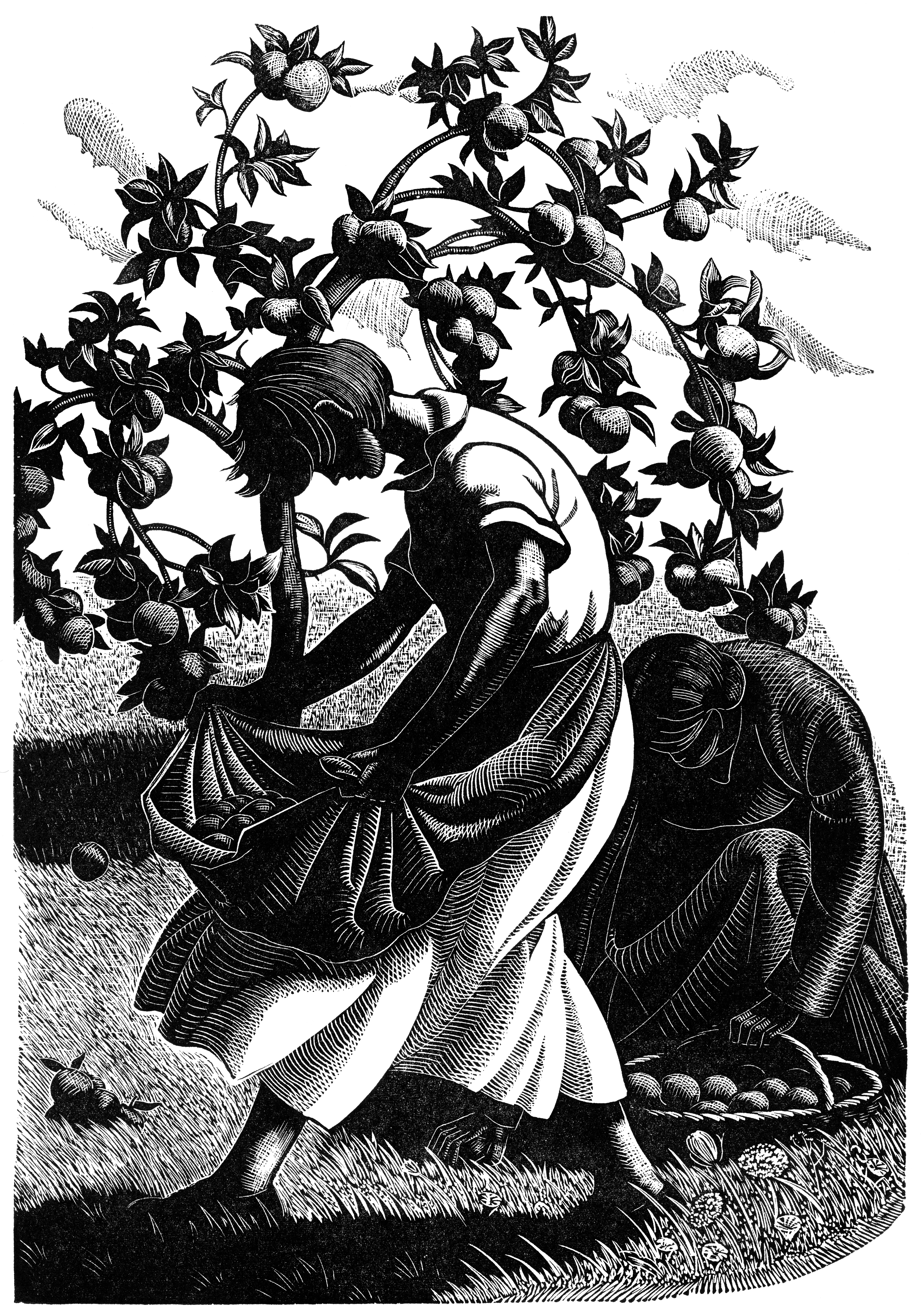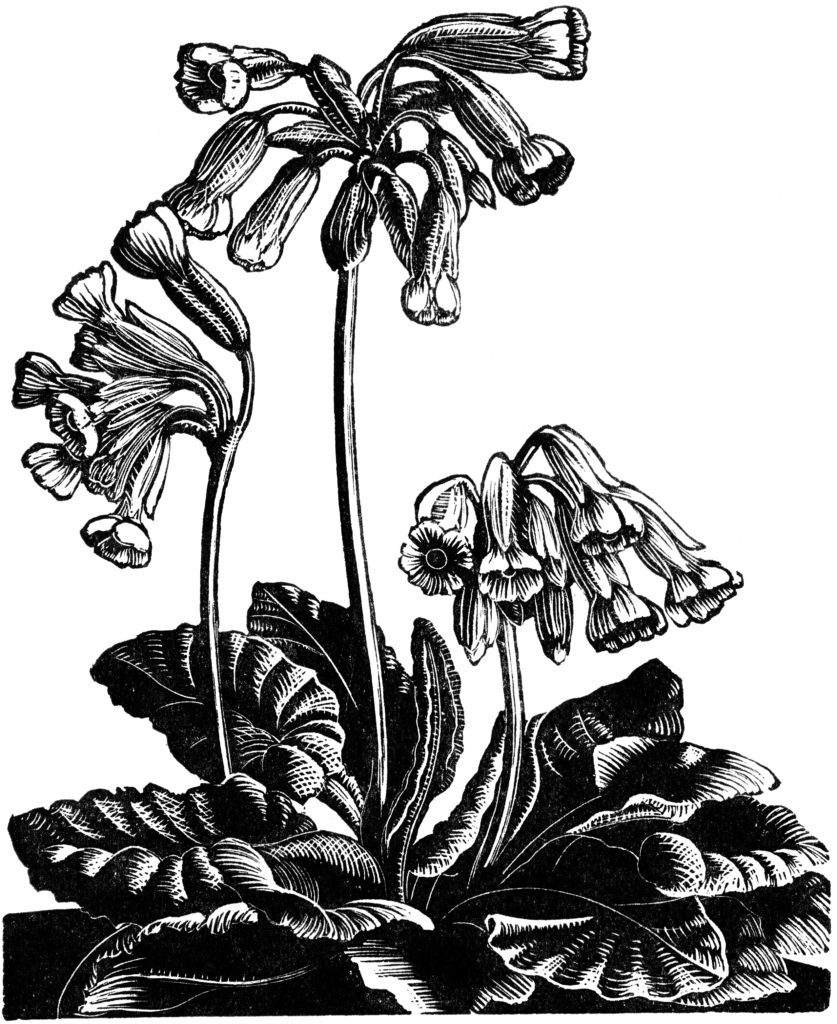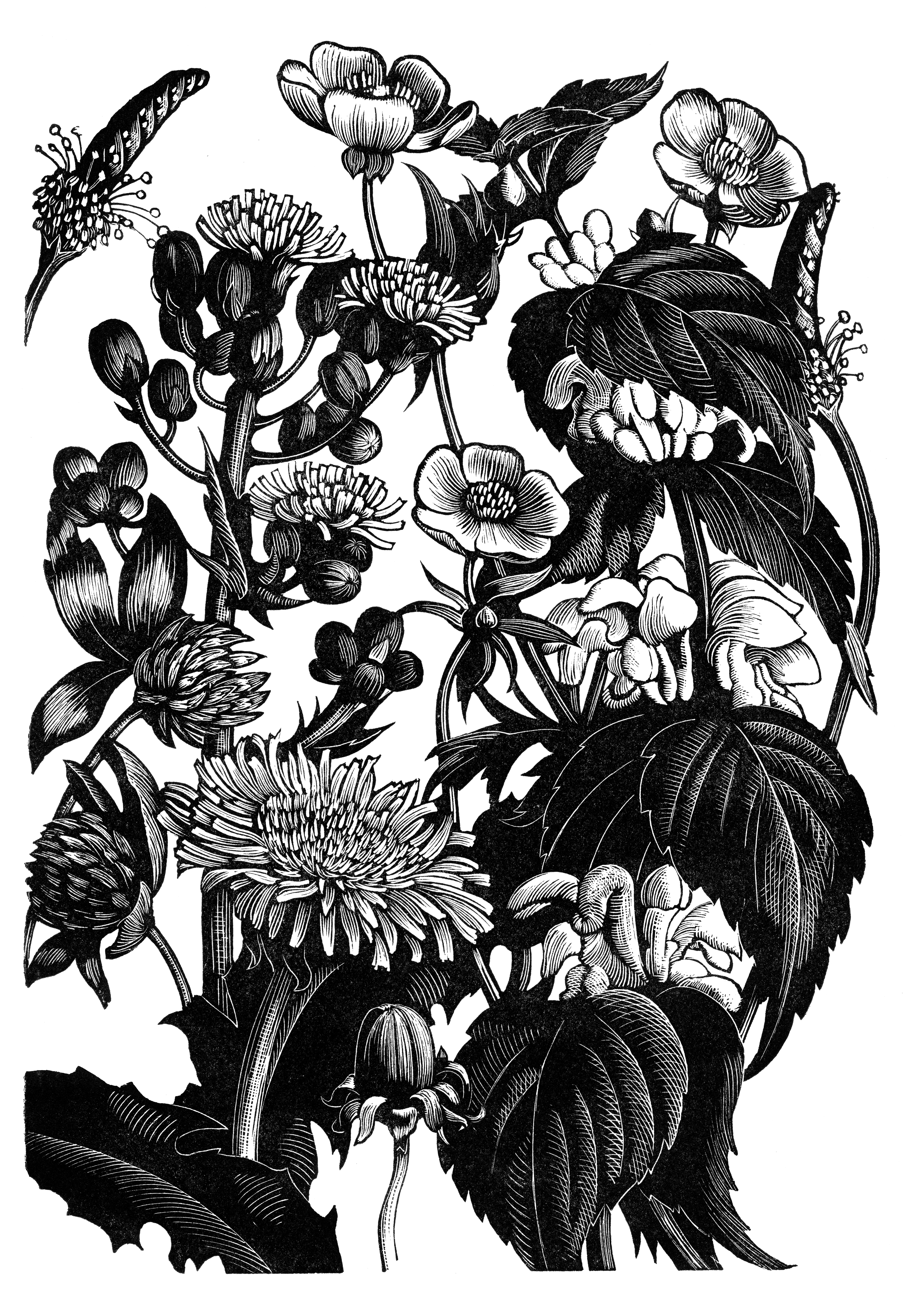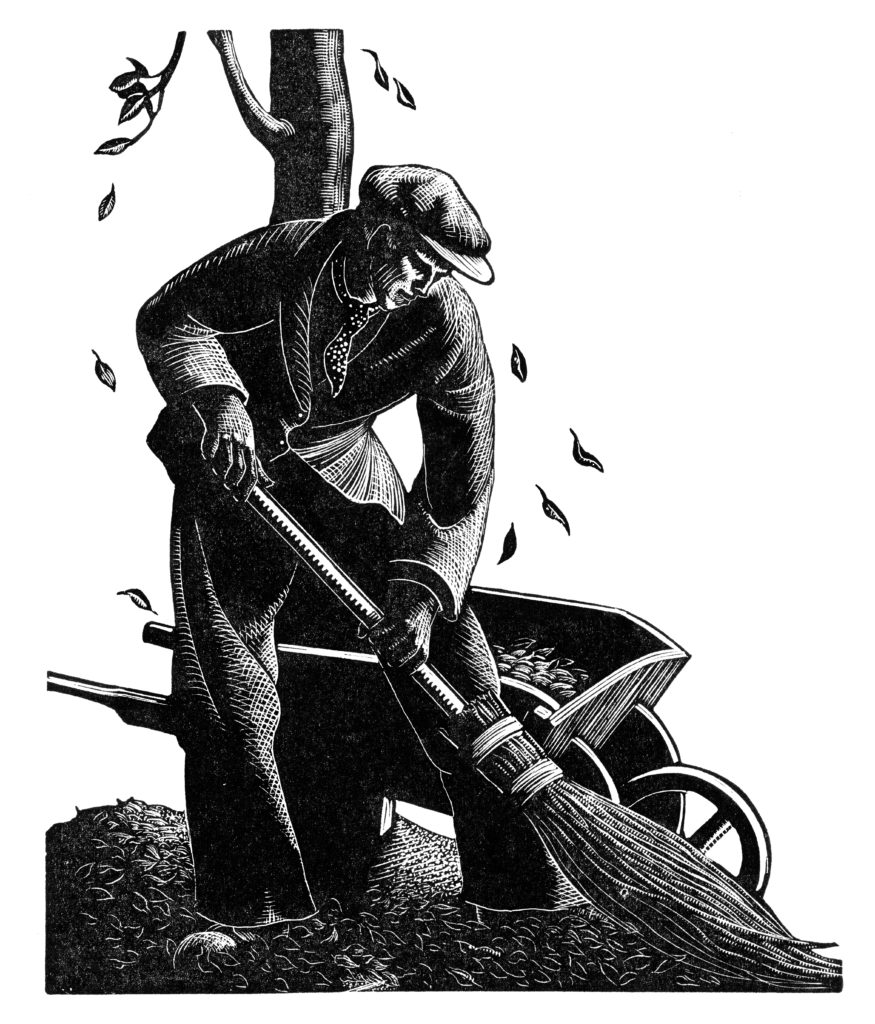Angie Lewin looks at the wood engravings of Clare Leighton.

‘Ours is an ordinary garden,’ begins Clare Leighton’s diary of a year at ‘Four Hedges’, her home where she lived and gardened with her partner Henry Noel Brailsford. Written and illustrated in the 1930’s, there are references which set it firmly in the early 20th century with its allusions to conversations with their gardener and housekeeper and those traditional practices which are part of an inherited understanding of nature and the seasons which have largely been lost over the years. But it is also timeless as much essentially does remain the same and so is very relevant now as we are regaining knowledge of how to work in balance with the natural environment. A garden, wherever it may be and whatever its size, is never ‘ordinary’ in its owner’s eyes. We benefit physically and emotionally from our personal relationship with the plants we inherit, or choose to grow and with the wildlife, native flora, the soil, the vagaries of the weather and the changes of the seasons, which combine to give a sense of place.
Through her writing and wood engravings, crisp and closely observed, Leighton reveals a deep empathy with plants, insects and birds. She admits that they first saw the meadowland where they created the garden ‘one shining day of May’. They’d been unable to ‘withstand the appealing beauty of the clumps of cowslips nor resist the hawthorn hedges that bounded the grassland.’ A very romantic reason to choose such an exposed spot in the Chiltern Hills. The book was written four years after they began to create the garden around these wildflowers and hedgerows. Hedges, especially, are a recurring theme throughout the book; as the seasons progress, she describes the birds that nest here and the flowers, berries and fruit which provide food for them and other animals and insects. The importance of only cutting hedges once chicks have fledged, as well as leaving berries and seedpods in the garden for wildlife to forage, is something that was part of gardening and farming then and is becoming so again as the importance of our relationship with nature and the environment is better understood.

Leighton has an obsession with the land which draws you in. You sense that she never wants to leave her home, even for a few days. Keen gardeners will recognise that on returning from time away, the unpacking will wait until every plant has been checked to see what has grown and what they have missed. Although sad to miss the flowering of a certain plant, there is the knowledge it will be there next year. Gardening is essentially an optimistic activity. We sow a seed or plant a tree with the anticipation of seeing it grow and return year on year.
Seeing the bigger picture, how a garden sits within the wider landscape, is important to Leighton as she wants to retain its link with the wild grassland and the coppices and lanes beyond its boundaries. Everything is observed in intimate detail as Leighton describes the bloom on a poppy seedpod or how the dew subtly transforms plants in different ways. Sometimes it seems she almost feels like a plant herself as she describes the quality of earth or the feel of rain and sun. Leighton sees beauty in the fresh new growth of spring and describes the breaking of horse chestnut buds in tactile detail. Hearing heavy rainfall overnight after a long drought, the author responds with almost physical relief and, when harvesting strawberries, is happy to leave some, along with cherries, for the birds.

The close relationship between her garden and her wood engraving is so evident, and I imagine her moving between garden and studio during the day. These two different creative activities are seamlessly entwined. The physical effort of digging, scything and often battling with the elements is in stark contrast with the painstakingly detailed, sedentary action of drawing and then engraving into an end-grain block of boxwood. Her intimate understanding and nurturing relationship with the species she grows and then chooses to illustrate evolves into images that perfectly capture the essence of a wildflower or an arc of blackberries on a stem.
The blurring of the boundaries between the wild and the cultivated, which is sometimes a hard balance to manage, is what this book is all about. It seems to me that the author has her priorities right when she writes: ‘Wild meadowland cannot be entirely changed into a cultivated garden in four years. And why should we mind?’ … ‘A garden should never forget its origin’… ‘Part of it should be allowed, and even encouraged, to lean back to the wild’.

*
Extracted from the latest edition of Random Spectacular’s ‘Oscillations’ magazine, which also features contributions by and about David Cass, Uli Schade, Frances Priest, Adam Nathaniel Furman, Tim Rich, Rob St John, Siôn Parkinson, Frances Castle, Ultramarine, James Nice, Katherine Jones, Clare Archibald, Emily Scott, Melvyn Evans, Tommy Perman, Marcus Oakley, Brita Granström, Simon Kirby, Bow Gamelan Ensemble, Julian Cowley & Jonny Hannah. Out now and available here (£9.75). All profits will be donated to WaterAid.
Angie Lewin was born in Cheshire and studied Fine Art at Central School of Art & Design, followed by a postgraduate year at Camberwell School of Arts and Crafts. After working as an illustrator, she went on to study horticulture and garden design. A move to Norfolk prompted a return to exhibiting paintings and prints. She is now based on Speyside in northeast Scotland.
Clare Leighton was one of the finest engravers of the twentieth century. In the 1930s, when she settled in the countryside with her long-term partner, the political journalist Henry Noel Brailsford, she turned her creativity to the land. Gardening became her passion. Her obsession. ‘Four Hedges’ is the story of the garden she carved from meadowland deep in the Chiltern Hills.
Little Toller Books was born in 2008 as an imprint of the Dovecote Press, a family-run publishing company that has specialised in books about rural life and local history since 1974. Little Toller was started with a singular purpose: to revive forgotten and classic books about nature and rural life in the British Isles.